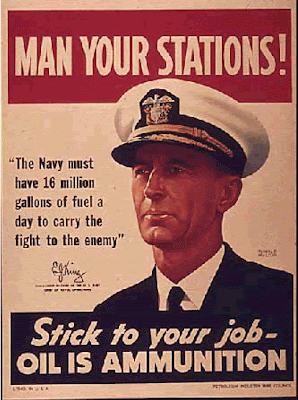All of the political parties agree New Zealand needs a long-term savings and investment plan . These elections there have been major policy announcements on Kiwisaver, reducing debt and the age of eligibility for National Superannuation.
Saving money good.
But when confronted with arguably a more serious and immediate threat to New Zealand's economy, national well-being and security -- namely our dangerous exposure to oil price shocks, and oil supply disruptions and shortages, - all the main parties fail to articulate a coherent long-term plan to lower our dependence on ever more expensive imported oil.
Saving fuel bad.
If you thought the need to save fuel was a minor issue compared to debt reduction, and a long-term savings and investment strategy -- think again.
A just released report from a US military think tank the Military Advisory Board (MAB) says oil importing nations like the US (and by comparison also New Zealand) need to reduce oil consumption by 30% in the next 10 years.
The report, entitled
Ensuring America's Freedom of Movement: a National Security Imperative to Reduce America's Oil Dependence , describes America's reliance on imported oil as the "Achilles heel of our national security". Members include some of the US’s highest-ranking retired military leaders with 400 years of collective military experience. The report calls for immediate, swift and aggressive action over the next decade to achieve the 30 percent reduction in U.S. oil consumption. (Guardian article here )
“We have seen oil shocks before. And they have been immediate and far-reaching. But at today’s level of US consumption, a sustained disruption would be devastating - crippling our very freedom of movement,” said General Paul Kern, USA (Ret.) who chairs the MAB. “This isn't just about the volatility of gas prices at the pump. This is a national security problem, manifesting itself economically, diplomatically and militarily, and it is not just going to go away."
The Report highlights how the US (just like New Zealand) has transportation systems which rely almost exclusively on petrol, diesel, and jet aviation fuel. These three products are refined from a single basic ingredient: oil. How we get to work, how we ship materials, how we farm or produce our food, and how we transport raw products to manufacturers or finished products to or from markets depends, in nearly all cases, on this single source of materials: oil.
“We have seen oil shocks before. And they have been immediate and far-reaching. But at today’s level of US consumption, a sustained disruption would be devastating - crippling our very freedom of movement,” said General Paul Kern, USA (Ret.) who chairs the MAB.
The report calls on national leaders to take the following steps (all of which apply equally to New Zealand as a nation almost totally reliant on imported oil ) to reduce U.S. oil demand by 30 percent in ten years:
• Increase efficiency: The first, fastest and most effective strategy to reduce oil consumption is to increase efficiency. The report identifies fuel economy standards for cars and trucks as a proven and effective way to reduce the use of oil, and calls for strengthening those standards,
• Diversify supply: “Our current overreliance on a single fuel is a weakness; relying on diverse fuels and vehicle types can be a strength,” the report notes. Government must take action to promote the use of a more diverse mix of transportation fuels and to drive wider public acceptance of these alternatives.
• Develop a national, cogent, dedicated and sustained energy roadmap that rises above partisan politics. The military leaders warn “security must trump ideology,” adding “the scale of impact associated with our energy use is massive.” They write that “the right energy choices can bring down our trade imbalance, lead to new jobs at home, launch new American-made technologies.”
If the US‘s military top brass are calling for a massive fuel savings plan, then I say it’s well past the time for our New Zealand politicians to grasp this nettle also. The US military can see clearly that slavish reliance on the ideology of “the market will solve it” or the occasional advert on TV urging us to keep our car tyres pumped to save fuel up is not going to cut it.
If a long term savings and investment is good, then a comprehensive fuel savings plan is very very good.
Poster from World War 11 - Oil is Ammunition

No comments:
Post a Comment